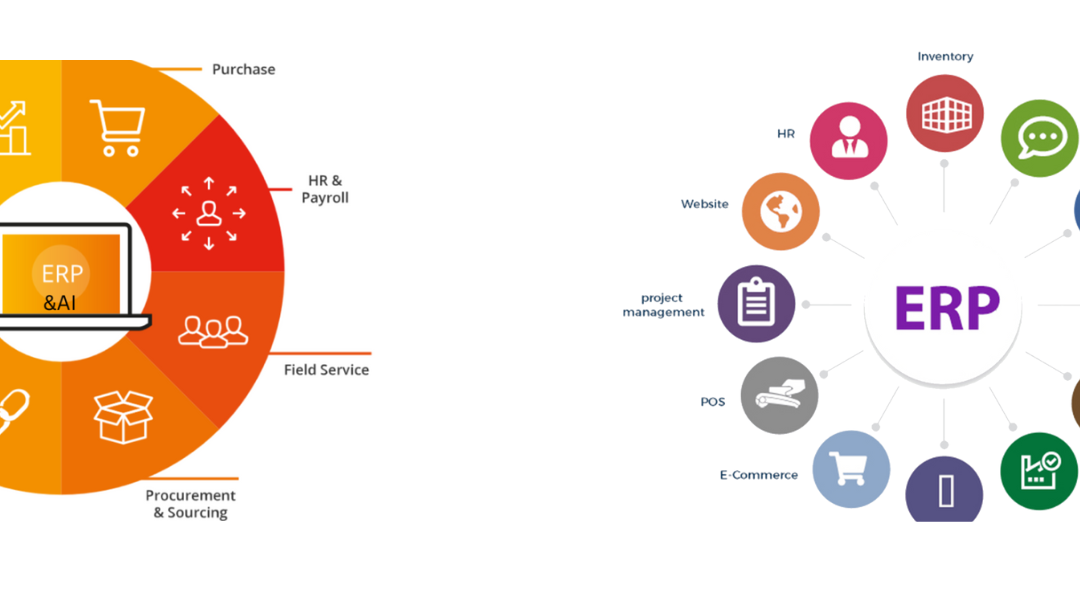In the recent past, ERP systems have been evolving, and the advent of AI (artificial intelligence) has revolutionized and strengthened them further. With the help of AI, ERP systems can ease business operations and increase productivity, profitability, and efficiency.
The Basics of AI and ERP Systems
According to Britannica, AI (artificial intelligence) is the ability of a computer-controlled robot to execute tasks similar to those of humans. Although invented years ago, AI is now widely recognized as a valuable asset in the business world for optimizing digital processes. With AI, it is now possible for businesses to identify inaccurate or incomplete data, analyse them, and provide reliable insights within seconds; this has enabled companies to make accurate, informed decisions.
Humans invented Artificial intelligence (AI), and it has become a highly sought-after asset for businesses, particularly in ERP systems.
AI is considered one of the most profound discoveries, even more than most human discoveries. Much research has shown that over 40% of large companies in any sector use artificial intelligence to develop and implement their business strategies. Furthermore, over 83% of the companies that prioritized technology use AI-related solutions for their business operations.
AI is the future of the economy. Unquestionably, it is any business with an upper hand against its competitors. AI is versatile enough to assist you whether you are considering the system for market research, business development, business scope, digital marketing, or any other business strategy. The following are different ways artificial intelligence influences ERP systems.
Enhanced Data Management
By combining ERP systems and AI, businesses can now automate workflows. Besides, they can save time by eliminating unnecessary human interactions when uploading information, improving operational effectiveness.
AI-supported ERP system also creates a master information database that is accessible anytime. The database is a significant element of an organization’s data.
Improved Customer Experience
Conversational AI has helped businesses improve customer experience. The AI ensures real-time support and customized recommendations for each customer. AI options such as voice assistants and chatbots can help customers place orders, resolve orders, track shipments, and improve customer loyalty and satisfaction.
Automation of Repetitive Tasks
In all businesses, some tasks are common and repetitive. Such everyday jobs can be automated and aligned by integrating machine learning instead of employing an additional human. AI systems can help you automate routine tasks. Additionally, they can help you save time and other resources. With AI systems embedded with ERP, businesses will focus more on high-priority areas and not dwell on simple repetitive tasks.
Predictive Maintenance
Integrating AI into your ERP systems will help you use volumes of stored data to anticipate any potential challenges before they occur. In addition, you will address the issues before they cause huge losses and cause breakdowns of your systems, business processes, and operations.
Improved Supply Chain Management
Integrating artificial intelligence in ERPs will help you find new patterns in your supply chain data. The data will help you identify areas that need improvement and find solutions. Such cases could be in product planning, demand forecasting, supply quality, transport management, and others that may affect the profitability of your business.
Challenges of Implementing AI in ERP Systems
Rolling out any technology comes with challenges. Some of the challenges that come with implementing AI in ERP systems include
- Low-quality or insufficient data
- High implementation costs
- Lack of artificial intelligence talent
Future of AI in ERP Systems
AI in ERPs is changing the way businesses operate. The systems empower businesses to optimize operations, improve customer experience, and, more importantly, help them make data-driven decisions.
AI technology has already significantly impacted various industries, and its effect is likely to grow even more. The most recent technologies in business, such as chatbots, research and presentation AI, and others, have greatly benefited businesses.
Investing in AI can help businesses discover valuable insights from their existing data to help make informed decisions. Comprehensively, AI in ERP is a game changer. If you consider improving the efficiency of your business operations and reducing operational costs for more profit, integrating AI in your ERPs is the way.

